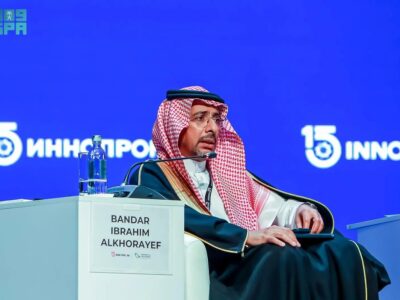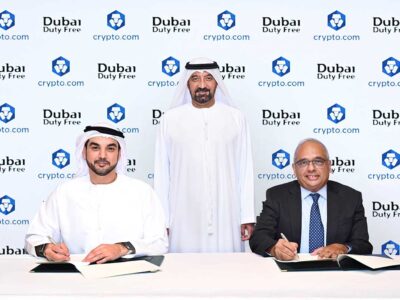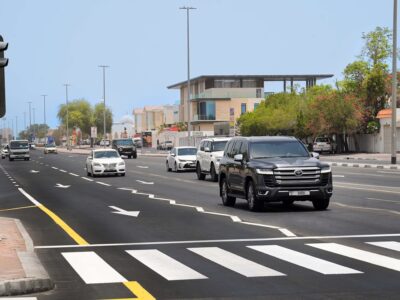One of the iconic symbols of Margaret Thatcher’s reign as British prime minister in the 1980s was her famous handbag.
From Reagan to Gorbachev, it is claimed the Iron Lady would brandish her handbag at high-level meetings to show she meant business.
Many of ministers allegedly felt her wrath in cabinet meetings when she used the accessory as a weapon. As a result, the term ‘handbagging’ was so widely used in reference to her that it soon entered the Oxford English Dictionary.
The symbol became so well-known that one of her bags, a black Salvatore Ferragamo model, sold for £82,110 ($131,258) at a charity auction in 2000 after a bidding war involving would-be buyers from all over the world.
The connection to the controversial British icon was instrumental in helping to raise the profile of Italian fashion house Salvatore Ferragamo. Giovanna Gentile Ferragamo, the second of the founder’s six children, speaks of the former prime minister with great warmth.
“She is a very good customer of ours and always has been,” Ferragamo says as she sits down for an interview in Dubai. “She is a very dear friend of ours.”
The celebrity endorsement came full circle earlier this year when the fashion house supplied the official handbags for ‘The Iron Lady’ feature film, a biography of Thatcher starring legendary actress Meryl Streep.
To add to the prestige, Streep also wore Ferragamo shoes to the 2012 Oscars, where she picked up the Academy Award for best actress for her portrayal of the political heavyweight.
Giovanna, who also works creating the women’s ready-to-wear division of Salvatore Ferragamo, is vice president of the group’s holding company and serves on the board of directors of Salvatore Ferragamo SpA and other Ferragamo companies, views the celebrity endorsements with a great sense of pride.
Article continued on next page
“They are fantastic testimonials. They are looked on as professional and it is a link that we always wanted since my father really started. We always have a fantastic relationship [with celebrities] and we are always proud when we see them enjoying our product.”
In the Middle East to launch their latest fragrance range, entitled ‘Signorina’, Luciano Bertinelli, CEO of Ferragamo Parfums, is slightly less enthusiastic about the cult of the celebrity and prefers the products to be the showcase.
“We are one of the most important and big companies in the fashion industry in the world. We sell a dream,” Bertinelli says, in a strong Italian accent and without any hint or irony.
“The Ferragamo family says the products need to speak so we don’t need a face… We try to move more in this direction [using celebrities] but we still think the product is the hero and the king of the brand.”
In fact, these days, celebrity and fragrances go hand in hand. Every female icon, and some males, have launched signature perfumes.
From the Beckhams to Katy Perry to British reality TV stalwart Kerry Katona and even Bruce Lee, no celebrity these days has made it until they have unleashed their own fragrance range. However, Bertinelli is no fan of this trend.
“It is an Anglo-Saxon trend… it is in America, the UK and Australia… It is not really in Europe… [or] in the Middle East really. It is not so relevant, while in America and the UK they are crazy for it,” he scoffs.
“It is short-term business. One product, huge investment and huge media and then they disappear. It is just volume, that’s it. It is a joke… It is for low-target people. We are completely different; for our brand, we have a history to tell.”
Without using a famous name to front their brand, Bertinelli says he sees double-digit growth for them in the sector this year and the Middle East is one of its key markets.
Article continued on next page
For the launch of ‘Signorina’, it chose four international launches, which included Moscow, Dubai, Shanghai and New York, a clear example that the emerging markets are part of its push for 2012.
“The Middle East is a different world. We are active in this area and we are here to launch the new fragrances. Dubai is one of the key pillars as there is huge potential in terms of spending as people love luxury and love brands.
“We are seeing good results in this area. It is still small to be honest but it is important. The Middle East represents five or six percent [of customers].”
While China is its main market at the moment, the difference with the Middle East, Bertinelli believes, is that Arab customers travel a lot more, are more cosmopolitan and their sales are not restricted specifically to just this region.
“A lot of people from the Middle East buy in Paris or London, a lot of our customers in London are from the Middle East,” he says.
Despite this, the Middle East is a growing market and the company plans to invest more in this region and expand its range.
“We have plans to open a larger distribution in the fragrance sector… not just in Dubai, in Qatar, in Kuwait and Saudi Arabia: this is about 70 percent of the business [in the Middle East]. We need to increase investment and distribution.”
In its home market of Europe, the eurozone debt crisis has made investment much more difficult and this is the main reason for the company’s focus overseas.
“Europe is a saturated market [and] very expensive to invest. If you put one euro in [Europe] you have to wait two to three years to get it back. In China if you put in a euro you can earn it back in 12 months, it is the same in the Middle East and Russia.
Article continued on next page
“Europe is not the centre of the world any more. It is important, for sure… but you have to see the future. If you have one euro, now you put it in China probably. You have to move the money. The future is the Far East and Latin America.”
While emerging markets are its focus, India is currently not on the cards yet. “For the moment we are not doing anything,” Bertinelli says. “Maybe in a few years, the infrastructure is not there.”
However, what could be on the cards is a move into the Middle East hotel business, a route already taken by rivals such as Armani, Versace and Missoni.
“We are not in real plans now but we are looking for some locations… We are open to expanding,” Ferragamo says, cryptically.
The Ferragamo family already has a hospitality arm, the Lungarno Collection, which was founded in 1995 and operates hotels, retreats villas and luxury sailing yachts in Rome, Florence and Tuscany.
“What we have done in hotels up until now, it is very much like small boutique hotels. I think in a place like [Dubai] you really need to do something on a larger, wider base. But we are looking to some possibilities,” Ferragamo adds.
However, Ferragamo does rule out a move into the nightclub business, like Italian rival Roberto Cavalli. Cavalli launched a club, named after himself, in Dubai in 2009, and in 2010 signed a $150m agreement with Lebanon-based lifestyle investment firm Pragma Group to launch 20 further Cavalli-branded clubs and cafes in emerging markets around the world.
“I don’t think we are going to go in that area,” she says when asked of the possibility of a Ferragamo Club in Dubai.
Regardless of whether the hotels come to fruition, the executives become rather coy when pushed as to whether they would be open to investment from Middle East investors, who have been snapping up luxury European fashion and retail brands across Europe in recent years.
Article continued on next page
“This is something really I cannot talk about… There are some, maybe… I cannot tell you that… I know something but it is really confidential,” Bertinelli says, getting a little flustered.
Bertinelli, who was in Dubai as part the firm’s global marketing campaign for ‘Signorina’, its latest fragrance launched this month, refused to be drawn on who the potential investors were or the status of negotiations.
“You can ask [Giovanna Gentile Ferragamo] as she is the vice president of the company. I know something but it is really confidential, if she says yes she will tell you,” he adds.
However, Giovanna denies any knowledge of any advances from Arab investors: “I don’t think I can answer today as I am not too familiar with everything that is happening with the finance side of our business.”
The Florence-based firm, founded by Salvatore Ferragamo in 1928, launched a successful $487m IPO last year, a move which resulted in its shares rising about 27 percent in six months.
While reporting a 26.2 percent rise in 2011 revenues to 986.5 million euros ($1.28bn), the Italian press reported, without citing sources, that sales could reach 1.1 billion euros ($1.4bn) this year.
In February, Salvatore Ferragamo group CEO Michele Norsa said the outlook “in general remains positive” after a strong start to 2012, which includes sales gains in Europe.
The fashion house’s local partner in the Middle East is the Al Tayer Group, whose portfolio of brands includes, amongst others, Bloomingdales, Harvey Nichols, Armani, Dolce & Gabbana, Gucci, Jimmy Choo and Yves Sant Laurent.
While Bertinelli’s words may earn him a Thatcher-style ‘handbagging’ from the Ferragamo executives back in Italy, it is certain the Middle East remains one of the company’s key markets. It has also proven that it can make it on its own – without the need for those pesky celebrity endorsements.







